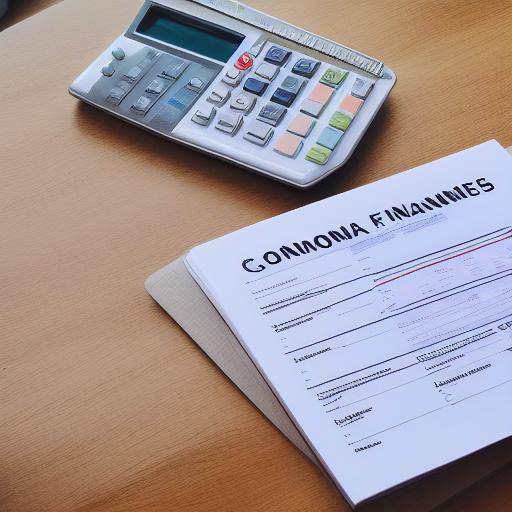
Financial discipline is essential for long-term economic stability and prosperity. However, many individuals face challenges in trying to keep it, which may result in financial problems. In this article, we will explore common mistakes in trying to maintain financial discipline, as well as strategies to avoid them and key lessons we can learn from them.
Introduction
The proper management of finance is crucial to ensuring economic stability and the financial future. However, on the road to financial discipline, it is common to make mistakes that can hinder our efforts to maintain a healthy economic balance. Identifying and addressing these mistakes is critical to achieving our long-term financial goals. Throughout this article, we will explore the most common mistakes, how to avoid them and the lessons we can draw to improve our financial discipline.
Common Failures at Trying to Keep Financial Discipline
Judgement 1: Lack of Cash Budget
One of the most common mistakes is not having an effective budget. Without a clear plan, it is easy to lose control of the expenses and exceed the income. A well-structured budget allows detailed tracking of income and expenditure, which facilitates informed decision-making on how to manage money.
Judgement 2: Excessive indebtedness
Excessive indebtedness is another frequent problem. Many fall into the trap of accruing debts due to irresponsible use of credit cards or loans. This not only generates high interests, but can also lead to a difficult debt spiral to control.
Judgement 3: Absence of Saving and Long-Term Planning
Not having savings or a long-term financial plan is a serious mistake. The lack of an emergency fund or future investment can leave vulnerable persons unforeseen and limited in their long-term options.
Judgement 4: Impulsiveness in Financial Decisions
Impulsive decision-making can quickly destabilize personal finances. Exploiting without planning or getting carried away by emotional purchases usually results in in ineffective use of money and long-term financial problems.
Avoid Errors and Reach Financial Discipline
Strategies for Establishing and Maintaining an Effective Budget
To avoid the lack of a budget, it is crucial to create a detailed one that covers all income and expenses. Using tools such as spreadsheets, personal finance applications or envelope systems can help manage the budget more efficiently.
How to Reduce and Manage Effective Way Debts
To avoid excessive indebtedness, it is important to limit the use of credit and prioritize the payment of existing debts. The "snowball" or "snowball" strategy are effective methods of reducing debts. Moreover, avoiding new debts unless absolutely necessary can prevent future problems.
Importance of Long-Term Saving and Planning
Establishing an emergency fund and contributing regularly to long-term savings are essential steps. Automating transfers to savings or investment accounts can facilitate the habit of saving. Planning for long-term financial goals, such as retirement, is also crucial.
Taking Reflective Financial Decisions and Based on Objectives
To avoid impulsive decisions, it is useful to create a plan of expenditure and to stick to it. Assessing the need and impact of purchases before making them can reduce unnecessary expenses. Setting clear financial goals and keeping them in mind helps align daily decisions with long-term goals.
Key Lessons for a Sustainable Financial Discipline
Past Error Learning: How to Convert Challenges to Opportunities
Recognizing and learning from past financial errors is fundamental. Each error can provide valuable lessons that, if properly addressed, can strengthen financial discipline and avoid future problems.
Building Healthy Financial Habits to Partition of Previous Experiences
Establishing healthy financial habits, such as regularly reviewing finances, adjusting the budget and constantly saving, helps maintain good financial health. These habits must be continually strengthened to ensure their effectiveness.
The Importance of Financial Knowledge and Continuous Education
Financial knowledge is key to avoiding common mistakes. Participating in personal finance courses, reading money management books and staying informed about financial issues can provide the tools necessary for effective financial management.
Financial Resilience Development: Super Obstacles and Maintain Approach
Developing financial resilience means being prepared to face economic challenges without losing focus. This includes having an emergency fund, diversifying income sources and being flexible with the budget when necessary.
Conclusion
In short, maintaining financial discipline is not a simple task, but it is essential to ensure long-term stability and economic well-being. By identifying common mistakes, implementing effective strategies to avoid them and draw valuable lessons, we can strengthen our ability to maintain a sound financial discipline. By learning from our failures, we avoid repeating past mistakes and moving towards a more solid and stable financial future.
Frequently asked questions
Why is it so common to make financial mistakes?
Financial errors are common due to lack of financial education, impulsive decisions and the complexity of personal finance. Lack of planning and control also contributes to these mistakes.
What is the importance of a budget in financial discipline?
A budget is crucial because it helps plan and control income and expenditure. It allows to identify areas of improvement and ensure that resources are used efficiently to meet financial targets.
How can I resist the temptation of impulsive expenses and stay on the path of financial discipline?
To resist the temptation of impulsive expenses, it is useful to establish a budget, plan purchases, and remember long-term financial goals. Avoiding situations that encourage impulsive spending is also important.
What role does financial knowledge play in avoiding financial errors?
Financial knowledge is essential to making informed decisions. Understanding concepts such as budget, savings, investment and debt enables effective management of finance and avoiding common mistakes.
How can I overcome excessive indebtedness and regain financial stability?
To overcome excessive indebtedness, it is crucial to create a debt payment plan, prioritize the payment of debts with greater interests and avoid new debts. It may also be useful to seek professional financial advice.
What is the role of financial education in establishing a sound financial discipline?
Financial education provides the necessary tools and knowledge to effectively manage personal finances. It helps to develop healthy financial habits and make informed decisions, essential to maintain a sound financial discipline.






















































